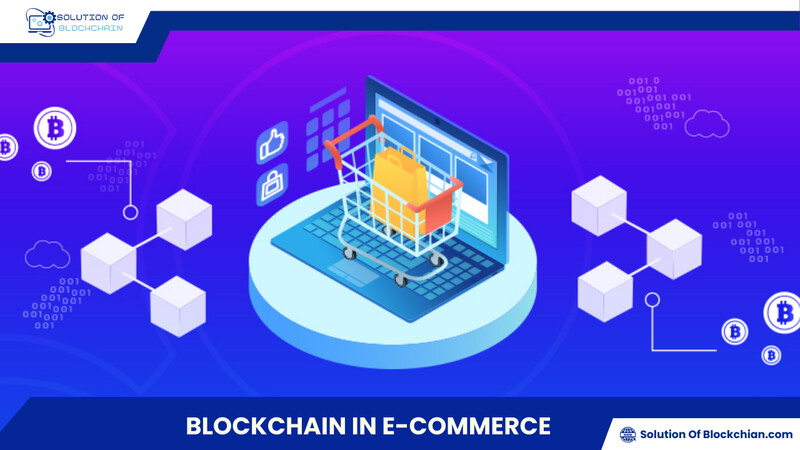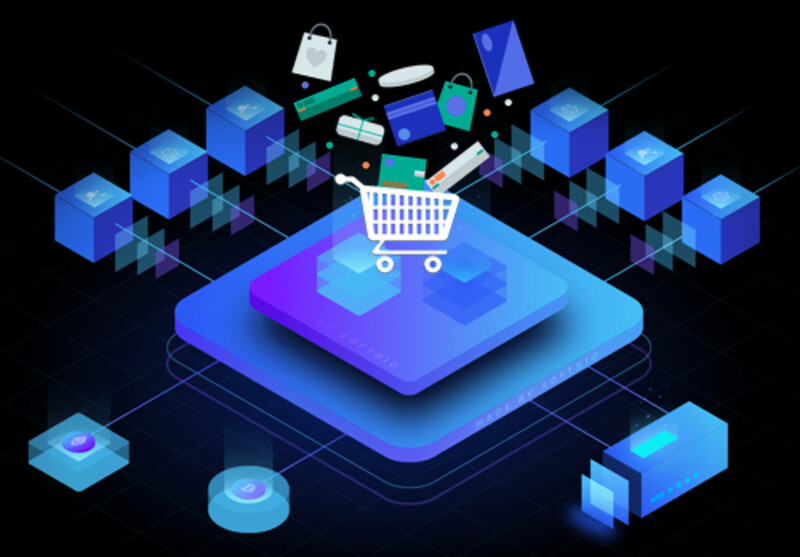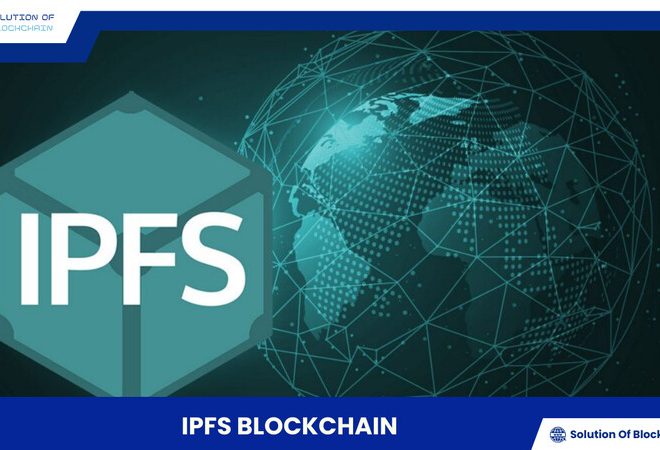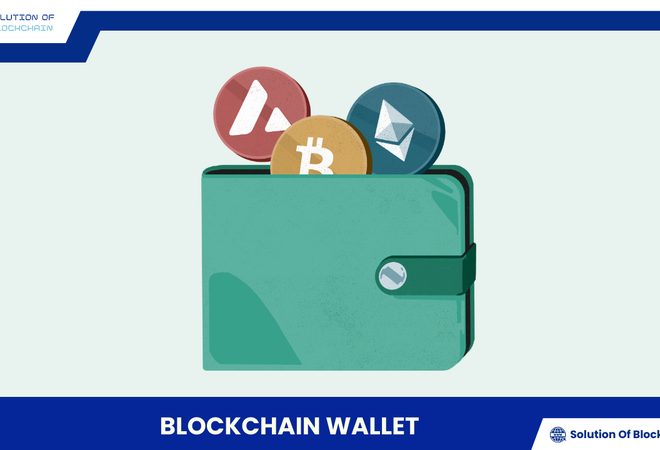
Blockchain in E-commerce
E-commerce is booming, but it also faces challenges in security, transparency, and efficiency. Blockchain has emerged as a breakthrough solution, promising to revolutionize the online retail industry. This article will analyze the role of blockchain in e-commerce, from its practical benefits to typical applications and future development trends.
What is Blockchain?
Blockchain, also known as “distributed ledger technology,” is a system of recording and transmitting information in the form of blocks of data linked together in a chain and securely encrypted. Each block contains information about transactions and is added to the chain in chronological order, forming a public, transparent, and immutable ledger.
Key features of Blockchain
Blockchain possesses striking features that make it a revolutionary technology:
Decentralization
This is the core characteristic of blockchain. Unlike traditional database systems, data on the blockchain is not stored on a central server but is distributed across multiple computers (nodes) in the network. This offers several advantages:
- Eliminates single point of failure: With no central point of control, it is difficult for hackers to attack or shut down the entire system.
- Enhances democracy: All nodes have the right to access and verify data, creating fairness and transparency.
- Reduces dependency: Users do not have to rely on any intermediary organization to conduct transactions.
Transparency
All transactions on the blockchain are recorded publicly and transparently. Anyone can look up and check transaction history. This transparency helps to:
- Increase accountability: All activities are recorded, making it difficult to cheat or manipulate data.
- Build trust: Users can verify information themselves, creating trust between parties.
- Improve efficiency: Transparent information helps parties to coordinate and make decisions easily.
Immutability
Data on the blockchain is protected by encryption algorithms and linked together in a chain. Once data is written to the blockchain, it cannot be changed or deleted. This immutability ensures:
- Data integrity: Information is always preserved in its original form, without unauthorized modification.
- Verifiability: Users can easily verify the authenticity of the data.
- Fraud prevention: It is very difficult to forge or alter information on the blockchain.
Security
Blockchain uses modern encryption technologies to protect data. Combined with decentralization and immutability, blockchain becomes an extremely secure system, capable of resisting cyberattacks.
Benefits of Blockchain in E-commerce
Blockchain in e-commerce brings many practical benefits, contributing to solving existing challenges and improving business efficiency:
Enhanced information security
In the digital age, protecting customer information is critical for e-commerce businesses. Data breaches and cyberattacks cause serious financial and reputational damage. Blockchain, with its encryption and data distribution mechanisms, along with advanced security technologies like digital signatures and multi-factor authentication, effectively prevents cyberattacks, protecting customer data from theft, leakage, or misuse.
According to statistics, the average cost of a data breach is up to 3.86 million USD. Applying Blockchain in e-commerce helps businesses minimize this risk, save costs and build trust with customers.
Increased transparency
Counterfeit goods are a persistent problem in e-commerce, causing significant damage to consumers and affecting business reputation. Blockchain allows consumers to quickly and accurately trace the origin, ingredients, production process, and transaction history of a product. This helps to prevent counterfeiting, build consumer trust, and enhance brand reputation.
For example, when buying a luxury fashion item, customers can scan a QR code on the label to view all product information on the distributed ledger, from the origin of materials, production process, shipping information, to quality certifications. This transparency reassures customers about product quality and encourages businesses to be more responsible and comply with standards in production and business.
Optimized operational processes
Applying blockchain in supply chain management helps automate processes, eliminate unnecessary intermediaries, reduce paperwork, and improve coordination among stakeholders. As a result, operating costs are reduced, delivery times are shortened, and customers receive products faster.
Smart contracts are a potential application of blockchain in e-commerce. Smart contracts are computer programs that automatically execute pre-agreed terms. For example, when a customer orders a product, a smart contract will automatically process the order, payment, and update the delivery status. This helps to reduce risks, save time, and improve transaction efficiency.

Improved customer experience
Blockchain creates a more convenient, secure, and personalized online shopping environment for consumers. Applications such as blockchain wallets, smart contracts, and blockchain-based loyalty programs simplify the payment process, personalize promotions, and enhance interaction between businesses and customers.
For example, loyalty programs based on this technology allow customers to accumulate reward points and redeem them transparently and securely. It also helps businesses effectively collect and analyze customer data to personalize promotions and enhance the shopping experience.
Market expansion
Blockchain has the potential to create decentralized e-commerce platforms, connecting buyers and sellers globally without intermediaries. This helps reduce transaction costs, expand markets, and create opportunities for small businesses to reach international customers.
Blockchain applications in E-commerce
Blockchain in e-commerce is being widely applied in many aspects:
Supply chain management
- Product traceability: Businesses like Walmart and Carrefour are using blockchain to track the origin of food, ensuring safety and combating counterfeiting.
- Quality control: It helps record the entire process of production, storage, and transportation of products, enabling quality control and rapid incident handling.
- Logistics optimization: Blockchain helps share information about shipping and warehousing transparently, enabling efficient coordination among parties in the supply chain, reducing costs and delivery times.
Payment and transactions
- Cryptocurrency: Bitcoin, Ethereum, and other cryptocurrencies enable fast, secure, and decentralized online payments, eliminating financial intermediaries.
- Digital wallets: Blockchain-based digital wallets like Coinbase Wallet and MetaMask provide secure and convenient solutions for storing and managing cryptocurrencies.
- Payment gateways: Payment gateways like BitPay and CoinGate allow businesses to accept cryptocurrency payments.
Building trust
- Product reviews: Amazon and eBay are exploring the application of blockchain to verify product reviews and prevent fake reviews.
- Digital authentication: It helps create electronic certificates, diplomas, licenses, etc., that are counterfeit-proof and easy to verify.
- Reputation systems: Blockchain can be used to build reputation systems for buyers and sellers, increasing trust in online transactions.
Customer data protection
- Identity management: Platforms like Civic and uPort allow users to control their digital identities and decide who to share information with and when.
- Privacy control: Blockchain helps users manage their privacy, protecting personal data from unauthorized collection and use.
Loyalty programs
- Reward points accumulation and redemption: Some airlines like Singapore Airlines are using blockchain to manage loyalty programs, allowing customers to accumulate miles and redeem rewards.
- Personalized offers: It helps businesses analyze customer purchase history to personalize promotions and provide relevant offers.
- Increased engagement: Blockchain can be used to create promotional games, enhance customer engagement, and build community.

Challenges and development trends of Blockchain in E-commerce
Despite its many benefits, the application of blockchain in e-commerce also faces some challenges:
- Scalability: It needs to be upgraded to handle a large number of transactions in real time.
Implementation costs: Implementing blockchain can be expensive, especially for small businesses. - Legal issues: The legal framework for blockchain and cryptocurrencies is still incomplete in many countries.
However, blockchain remains a promising and rapidly developing technology. Here are some development trends of blockchain in e-commerce:
- Web3: Web3 is a new generation of the internet based on blockchain, bringing more decentralization, transparency, and security.
- Metaverse: Metaverse is a virtual world based on this technology, where users can interact with each other and carry out economic activities.
- DeFi: DeFi (Decentralized Finance) is a decentralized financial system based on blockchain, providing financial services such as lending, borrowing, and currency trading.
The future of Blockchain in E-commerce
Blockchain in E-commerce is poised for significant growth. As the technology matures and becomes more widely adopted, we can expect to see even more innovative applications emerge. This will not only transform the way businesses operate but also enhance the online shopping experience for consumers.
Blockchain in e-commerce is gradually becoming an important technology, bringing many benefits to consumers and businesses. This technology helps improve information security, increase transparency, optimize operational processes, improve customer experience and expand the market. Although there are still some challenges, Blockchain in e-commerce is developing rapidly and promises to revolutionize this field in the future. E-commerce businesses need to proactively research and apply blockchain in e-commerce to improve competitiveness and create sustainable advantages in an increasingly developing market.
If you want to learn more about blockchain and its applications in other fields, please follow the next articles from Solution Of Blockchain to update useful knowledge and the latest trends.




